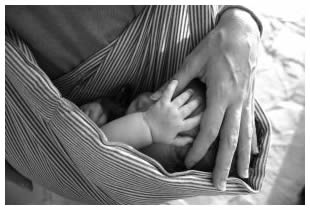 Postpartum psychosis is the most severe of the three postnatal conditions as outlined in Postpartum depression: What are the symptoms? It affects roughly one in 500 new mothers and generally manifests within the first fortnight after giving birth.
Postpartum psychosis is the most severe of the three postnatal conditions as outlined in Postpartum depression: What are the symptoms? It affects roughly one in 500 new mothers and generally manifests within the first fortnight after giving birth.
The two predominant symptoms of postpartum psychosis are major depression and manic episodes. Severe manic or depressive episodes, often involving psychosis where the individual loses contact with reality, are a feature of the illness. It should not be confused with the milder depression symptoms experienced with postnatal depression.
The symptoms typically begin 2 to 3 days after delivery but may occur as late as one month after giving birth. Although the incidence of postpartum psychosis is low (approximately one in every 1000 births), these symptoms may be indicative that a full-blown psychosis or bipolar disorder is imminent.
Where a new mother develops such symptoms, the odds of her going on to experience another episode with later births are 50%. That is, she has a one in two risk that subsequent births will result in similar symptoms occurring. Often a severe postpartum episode assists in the prediction of a future mood disorder. Having prior knowledge of the likelihood of later episodes of major depression and/or manic episodes is a useful preventative tool, as medical intervention can occur earlier and with more positive results. Early recognition of the likelihood of this illness reoccurring is important as a small proportion of mothers may harm either themselves or the baby. Hence, foreknowledge is important in cases such as these.
Postpartum psychosis is a serious illness requiring psychiatric assessment and medication. A stay in hospital is usually mandatory, preferably in a unit which allows mother and baby to remain in close contract under supervision. The recovery rate for this condition is excellent, although as previously noted, signs of recurrence during subsequent pregnancies should be monitored.
Associated articles:
Postpartum Depression: What are the symptoms?
Postpartum depression: Effects on relationships (1)
Postpartum depression: Effects on relationships (2)
Postpartum depression: Effects on relationships (3)
Fathers and Postpartum Depression
Postpartum Depression: Effects on the Marriage
Contact Beth McHugh for further information or assistance regarding this issue.

